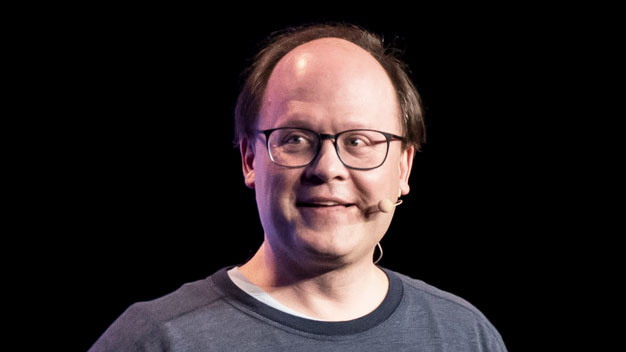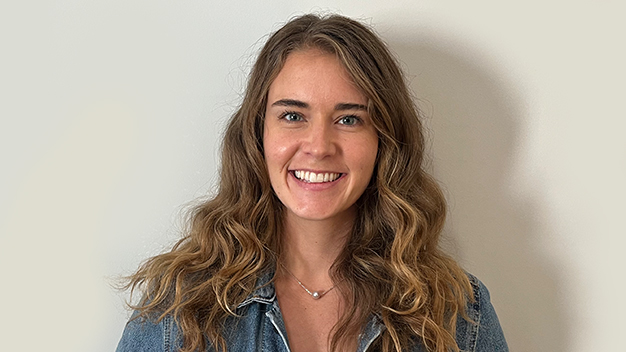Making data science more open and collaborative
JJ Allaire

Episode notes
We were recently joined by J.J. Allaire, Founder and CEO of Posit PBC.
What made you so interested in open source initially?
It was really that the first big software projects I worked on were proprietary software, and I found it disappointing that proprietary software products kind of get very tied up with the company that sponsors them – the fate of that company, the other products that that the company might offer, or who that company gets acquired by really end up affecting the fate of the projects.
I also found that while some proprietary software is either cheap or low cost, there’s a certain impediment to adoption associated with the price. As a creative person, I want my work to be available as broadly as possible.
I like to make the work available to as many people as possible, but also there’s a dimension of the durability of the work. Is the work going to be around in 30 years or 40 years? What are the things that would make it? So that’s what made open source appealing to me.
What are you most excited about at Posit in the next year ahead?
It’s going to be related to Quarto, of course, because that’s what I’m spending all my time on. I would say that the thing I’m excited about is that we recognized Quarto is really powerful and flexible, and easy to use for a certain subset of users who are very technical and very motivated, but we actually want to make Quarto available more broadly. So working on tooling that lets both technical and non technical people collaborate over documents, and also lets some less technical people participate in using Quarto. (You can sort of see some of this work in the visual editor that’s in RStudio) Those are the kind of things that I’m focused on for the next year, and I’m excited to see those getting realized.
In hindsight, what is one of the best decisions that you ever made for your career or your education?
I think this actually has a lot of commonality with talking to a lot of people about their careers. I think when I was about in my late 30s, I had been involved in both developing software and also starting companies. I really learned about myself, that the company part of things – the management and entrepreneurship – I really did not like it all. I didn’t enjoy it.
So I kind of said, I’m happy to be involved in starting companies but I’m absolutely not going to do that part, and I’m going to have to find a partner or other people who are excited about doing that part. What I really want to do is focus on engineering and product development.
It’s very easy as a company founder to get pulled into all kinds of other things and that’s what happened to me the first 2 times. Just being super clear about that, and saying I won’t even do it unless I can satisfy this condition.
I think that’s pretty broadly applicable in that a lot of us accumulate a lot of responsibility in our careers. Some of it is necessary and important for a given role or company, but then eventually being clear about, what do I really like to do and really want to do? What do I feel like I should do or what is put upon me?
I know a lot of people now who are in their 40s who have actually managed dozens of people and are like, yeah, I don’t really want to do that. I don’t ever want to have anyone work for me anymore. So I’m going to be really clear about that. I’m going to walk in, and people are going to try to give me people and try to make me a manager, and I’m not going to do it.
I think it applies pretty broadly, but just knowing yourself and setting pretty rigid constraints about what you’re willing to do in the workplace and not. Everybody’s different, and both can be really rewarding. I know a lot of people who find management very rewarding, but I know a lot of people who find it really alienating.
Where do you see R in the next 10 years?
I think what we are trying to do with R (and you can see a lot of the stuff that we’ve done and maybe it’s not all super visible yet, but for example how the tidyverse team in the last year has been focused on making error messages much better)
I feel like R has the potential to cross over the transom for people who do not program, do not think of themselves as programmers, or have not programmed to do successful code-first data science. I think R is actually pretty uniquely positioned to do that, and I feel like we are just getting started with that. So the people who today use Excel or SPSS or Tableau. They’re doing data analysis, but they’re actually not able to ask and answer all the questions they should.
I see R fitting right in that spot of the best way for someone who thinks of themselves first as a biologist, an economist, etc. but I need to answer difficult questions about data. So I see R getting better and better and better in that vector and that’s certainly where we’re putting our time at least in the tidyverse team right now.
Something Posit has talked about is creating a company that’s around in 100 years. What are you thinking about to get Posit there?
Well, I think the number one thing was getting the right corporate structure (Public Benefit Corporation) so all the incentives are aligned so that’s the only thing we need to worry about and we’re not worried about maximizing some short term objective. So, that’s one.
Two is going to be leadership succession. It’s easy to get caught up in you know, there’s 4 or 5 of us that are kind of leading things and we’re making it all work, but we’re all going to get old. Trying to figure out over time who are the people that are going to succeed you and giving them opportunities to even accelerate their learning, and bring them into the space that you’re in.
I think this is where a lot of organizations fail to be sustainable. They may be economically sustainable. They may have the right corporate incentives, but then succession kind of does them in. So that’s something where it’s not like right on our doorstep, but it’s something that’s on my mind to think about.
Featured in this episode

JJ is a software engineer and entrepreneur who builds tools that empower people with technology. JJ has conceived and designed several industry leading products by balancing market, customer, and technical considerations, and by maintaining intimate involvement in all aspects of software design and construction.
